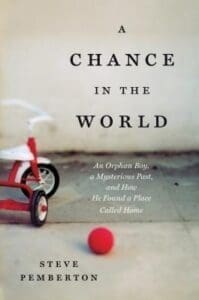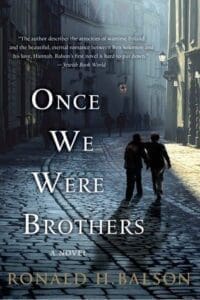A Hundred Flowers by Gail Tsukiyama – 288 pages
Advanced Reader Copy courtesy of St. Martin’s Press
Advanced Reader Copy courtesy of St. Martin’s Press
Book Blurb:
China, 1957. Chairman Mao has declared a new openness in society: “Let a hundred flowers bloom; let a hundred schools of thought contend.” Many intellectuals fear it is only a trick, and Kai Y ing’s husband, Sheng, a teacher, has promised not to jeopardize their safety or that of their young son, T ao. But one July morning, just before his sixth birthday, Tao watches helplessly as Sheng is dragged away for writing a letter criticizing the Communist Party and sent to a labor camp for “reeducation.”
A year later, still missing his father desperately, Tao climbs to the top of the hundred-year-old kapok tree in front of their home, wanting to see the mountain peaks in the distance. But Tao slips and tumbles thirty feet to the courtyard below, badly breaking his leg.
As Kai Ying struggles to hold her small family together in the face of this shattering reminder of her husband’s absence, other members of the household must face their own guilty secrets and strive to find peace in a world where the old sense of order is falling.
A year later, still missing his father desperately, Tao climbs to the top of the hundred-year-old kapok tree in front of their home, wanting to see the mountain peaks in the distance. But Tao slips and tumbles thirty feet to the courtyard below, badly breaking his leg.
As Kai Ying struggles to hold her small family together in the face of this shattering reminder of her husband’s absence, other members of the household must face their own guilty secrets and strive to find peace in a world where the old sense of order is falling.
My Review: 3.5 stars
Gail Tsukiyama is one of my favorite authors. She is able to go deep inside her characters and express them so well. I find her writing tranquil and peaceful even if there is unrest going on in the story. I loved the protagonist Kai Ying who is holding her life in balance while her husband is away for a letter he supposedly wrote. She is a strong mother, wife, daughter-in-law and friend and this novel delves into all those relationships and interrelationships amongst the characters. Although interesting, I would have liked to know more about the two other women who come to live in the villa, especially Suyin.
Quotes I liked:
It takes the same amount of energy to worry about the worst thing that can happen as it does to hope for the best. It’s up to you to choose.”
– “History is a series of stories pieced together, he once told Tao. And art is a living record of it.”- “Have you heard the saying, ‘The wise adapt themselves the circumstances, as water molds itself to the pitcher’? It seems I’ve been the pitcher most of my life. I’ve forgotten how to be the fluid.”
– “Sometime the best lessons are in the journey, regardless of the outcome.”
















